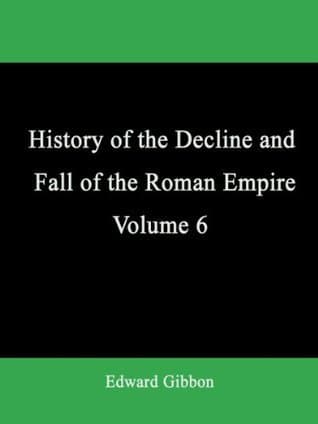
Book Review Summary: History of the Decline and Fall of the Roman Empire - Volume 6
Introduction
The History of the Decline and Fall of the Roman Empire, written by Edward Gibbon and published in six volumes between 1776 and 1788, is a monumental work that has captivated readers for centuries. This article will provide a comprehensive review of the book, including an introduction to the author, an analysis of common opinions, reasons for recommendation and not recommendation, and a conclusion.
About Edward Gibbon
Edward Gibbon (1737-1794) was an English historian and Member of Parliament known for his most significant work, The History of the Decline and Fall of the Roman Empire. Gibbon's prose style, use of primary sources, and critical approach to organized religion set him apart as a renowned historian. His life's achievement, spanning over a decade, garnered immense praise from contemporaries such as David Hume and positioned him at the forefront of European literature.
Analysis of Views
- Comprehensive Scholarship: Readers appreciate the meticulous research and thorough scholarship evident in Gibbon's work. The author's extensive reading of primary sources and attention to detail make the book a valuable resource for understanding the decline and fall of the Roman Empire.
- Engaging Narrative: Despite its length, readers find Gibbon's writing engaging and enjoyable. The author's ability to weave together complex historical events and personalities into a compelling narrative keeps readers engaged throughout the entire series.
- In-Depth Analysis: The book offers a deep analysis of the political, social, economic, and religious factors that contributed to the decline of the Roman Empire. Readers appreciate the nuanced understanding of these factors, which allows them to appreciate the complexity of historical events.
- Detailed Chronology: Gibbon's work provides a detailed chronology of events, making it easier for readers to follow the progression of history. The author's attention to specific dates and events adds depth to the narrative and enhances the overall understanding of the subject matter.
- Critique of Organized Religion: Gibbon's work is known for its critical stance towards organized religion. Readers appreciate his open criticism of religious institutions and his exploration of how religious beliefs influenced political decisions during the decline of the Roman Empire.
Reasons for Recommendation
- Comprehensive Coverage: The book covers a vast period of history, from the reign of Constantine to the fall of Constantinople, providing readers with a comprehensive understanding of the Roman Empire's decline and fall.
- Engaging Writing Style: Gibbon's writing style is praised for its clarity, wit, and eloquence. Readers find his prose enjoyable and appreciate his ability to convey complex historical events in an accessible manner.
- Thorough Research: The book is based on extensive research, including primary sources, which adds credibility to Gibbon's work. Readers value the author's attention to detail and his commitment to accuracy in presenting historical events.
- Informative Insights: The book offers valuable insights into the political, social, economic, and religious factors that shaped the Roman Empire's decline. Readers find Gibbon's analysis enlightening and appreciate his ability to provide a holistic understanding of this complex historical period.
- Cultural Significance: The book has had a lasting impact on Western civilization and continues to be regarded as one of the most significant works in historical literature. Readers recommend it as a must-read for anyone interested in understanding the history of the Roman Empire or seeking a comprehensive exploration of historical events.
Reasons for Not Recommendation
- Length and Difficulty: Some readers find the book daunting due to its length and complexity. The six-volume series spans over 5,300 pages and can be challenging for readers to complete or follow consistently throughout the entire series.
- Sexist and Racist Elements: A few readers have criticized Gibbon's work for containing sexist and racist elements that may be off-putting or uncomfortable for modern readers. While Gibbon read extensively from primary sources, some aspects of his writing may be perceived as biased or insensitive by contemporary standards.
Conclusion
The History of the Decline and Fall of the Roman Empire by Edward Gibbon is a monumental work that has captivated readers for centuries with its meticulous research, engaging narrative, and in-depth analysis of historical events. While some readers find it daunting due to its length and complexity, others appreciate its comprehensive coverage, engaging writing style, thorough research, informative insights, and cultural significance. While there are criticisms regarding sexist and racist elements in Gibbon's writing, his work remains a valuable resource for anyone interested in understanding the history of the Roman Empire or seeking a comprehensive exploration of historical events. Overall, this book is recommended for those who have the patience and interest to embark on a journey through one of history's most significant periods.